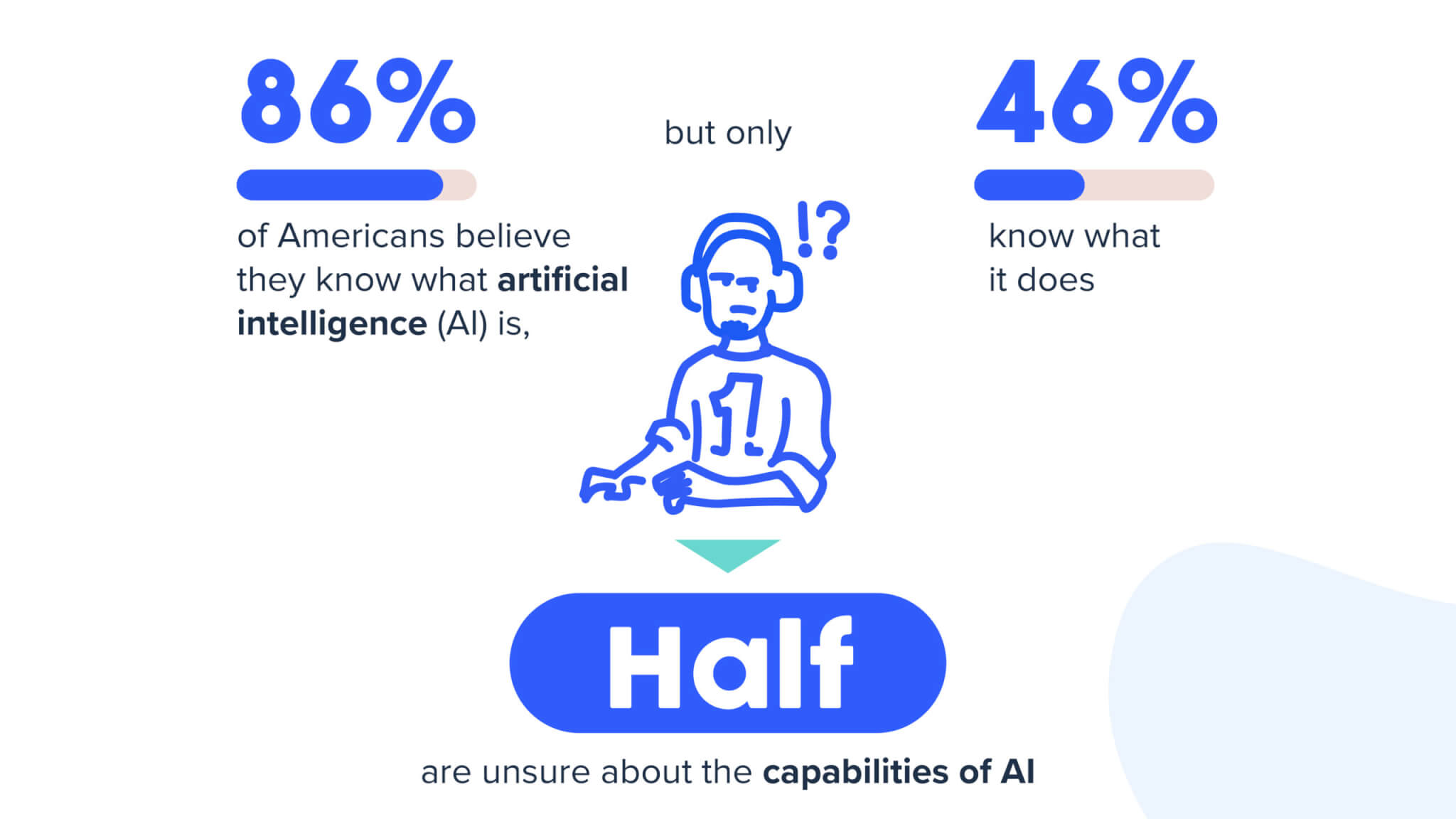NEW YORK — With modern technology becoming a common sight wherever you go, the concern over cyber security threats has only grown. Americans fear artificial intelligence (AI) and big corporations taking and exploiting their data. Despite all that, a new survey finds that 87 percent would actually provide their personal information to brands in order to save a few bucks!
A poll of 2,000 U.S. adults also found that 86 percent believe they know what AI is, but only 46 percent know what it does. This shows that more than half of Americans are unsure of the capabilities of AI. Over half (58%) trust AI, with Gen Z being the most trusting (67%). The least trusting group was found to be baby boomers, at 29 percent.

How far are people willing to trust AI?
Americans say they are comfortable letting AI auto-order household items when they run low (36%), making reservations on their behalf (33%), and choosing their clothes for them (30%). Meanwhile, tasks people would not trust AI with include doing their taxes (31%), driving (28%), and monitoring children (26%).
The study commissioned by UserTesting and conducted by OnePoll revealed that 70 percent are concerned about their privacy when they use artificial intelligence (AI) — top concerns being over not knowing what’s being done with their personal data (72%) and getting targeted ads (56%).
Millennials are the most concerned with AI privacy (72%), while baby boomers are the least (66%). Over half (55%) are concerned about big corporations having access to their personal information. Yet privacy concerns don’t stop millennials from sharing their personal information: 73 percent are willing to hand over their details, while Gen Z and baby boomers were the least likely to share (27% each).
Despite the concerns many have, respondents shared they would still be willing to share their birthdate (52%), their full name (45%), the name of their spouse or partner (44%), their email address (38%), the names of their children (36%), and even their social security number (34%) in certain circumstances.
“It’s quite interesting to see this dichotomy so many people have with AI,” says Principal of experience research strategy at UserTesting Lija Hogan, in a statement. “So many seem to have a fear of AI or big corporations taking their data, but they’re willing to give it away if the deal is good enough. What this shows us is a core misunderstanding of what AI is and how it’s used. Many might think they know what it is, or they might be willing to give AI and companies access to certain personal information, but there’s still an overall concern about its capabilities and how it can benefit them.”

Shopping with AI
The study also revealed half of Americans currently use AI in some capacity in their daily life — usually engaging it through their computer (74%), phone (62%), or while shopping online (57%). Another 72 percent believe AI can save them up to an hour in their daily routine.
Shoppers specifically stated they believe AI was being used in customer support (70%), estimating shipping costs (69%), and managing returns and exchanges (64%).
Two in three (65%) believe AI knows their shopping habits equal to or better than the people closest to them. Likewise, 53 percent believe AI knows their shopping habits are equal to or better than themselves.
Nearly three-quarters (73%) believe AI improves the shopping experience — saving shoppers time (73%), offering them convenience while shopping (66%), and creating personalized experiences for them while shopping (62%).
With Black Friday quickly approaching, the majority of shoppers (73%) plan to use AI to find the best deals for the busiest shopping day of the year.
“In many ways, it’s refreshing to see so many people already aware of how AI is incorporated into their shopping habits,” continues Hogan. “Still, the misconception of how AI is used is still prevalent. Making shopping easier with the use of AI means explaining to shoppers how AI can benefit their experience.”
Survey methodology:
This random double-opt-in survey of 2,000 general population Americans was commissioned by UserTesting between August 3 and August 5, 2023. It was conducted by market research company OnePoll, whose team members are members of the Market Research Society and have corporate membership to the American Association for Public Opinion Research (AAPOR) and the European Society for Opinion and Marketing Research (ESOMAR).




